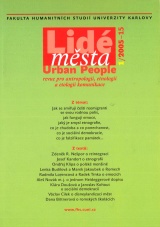Chudoba a ponechanost
Na cestě k oproštění
DOI:
https://doi.org/10.14712/12128112.3935Abstrakt
The paper on Heidegger’s late conception of basic human condition called “Gelassenheit” tries to show the theological inspiration drawn especially from the mediaeval German Master Eckhart, hand in hand with Heidegger’s transformative conception of phenomenology. The main concern of Heidegger is to forsake the metaphysical foundation of the human condition in the self-regulating will, which leads to the corruption of human essence (Wesen) regarded only as manipulating the existing things reduced in its essence to a sheer source (Bestand). Humans, being but sources themselves, are compelled by the metaphysical “power” that’s taking place as the essence of technology under the name of Ge-Stell. Heidegger attempts to re-think the topic of Gelassenheit as an alternatively conception of the human condition not founded in the will, so that the conception of freedom does not consist in self-regulation, but in being in charge of the openness of the Being (die Gegnet), usually called the truth of Being in the sense of the so-called “clearing” (Lichtung). The human essence consists of one negative and one positive step of letting-be: the negative “action” of letting-be is the step of forsaking the striving of the manipulative will (Ablassen); the positive part of the Gelassenheit means the step of letting myself to start with the openness of Being (Gegnet), in which everything happens on its own and respectively to the sense of its own essence. The transformed meaning of phenomenology – with its maxim: to the matters themselves! (Zu den Sachen selbst!) – appears to be the transformation itself, so that Heidegger’s late conception of phenomenology can be called the transformative phenomenology transforming the one who is taking part in a different way of letting things to be seen.
Stahování
Publikováno
Jak citovat
Číslo
Sekce
Licence

Tato práce je licencována pod Mezinárodní licencí Creative Commons Attribution-NonCommercial-NoDerivatives 4.0.


